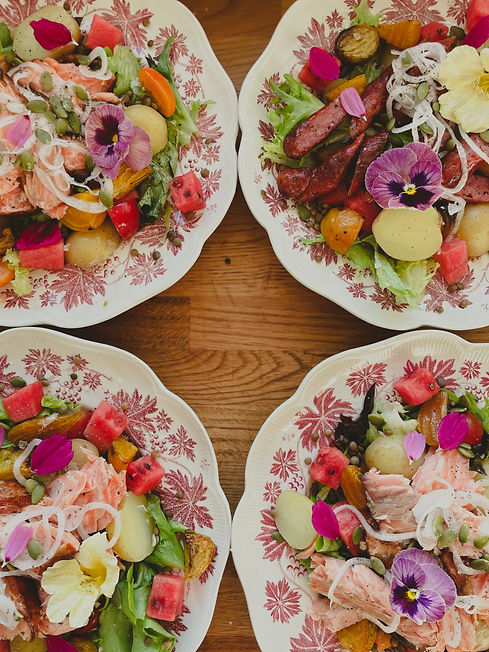Villa Alskog and Sustainability
The sustainability perspective permeates everything we do at Villa Alskog, while we still have a long way to go! We are a small business, where we have too few resources, both in time and money, to do everything we would like. During 2023/2024, Karin took courses in sustainable tourism and restaurant operations so that we would have the tools to work more structured in this area. Below we have summarized the steps we have taken and changes we are currently working on based on our hotel and restaurant operations. That is not all we do, but things we want to highlight as we hope to inspire other hotel and restaurant operations to take similar steps towards a more sustainable operation. Feel free to ask us if you are curious about the details!
Finally, we want to emphasize that sustainability work is a joint effort. So what can you as a visitor do to contribute to a more sustainable visit to the island?
Among the most important things you as a visitor to Gotland can do to contribute to a more sustainable visit is to support local small businesses. Visit farm shops, buy a lambskin or pottery, go to a flea market, visit all the lovely restaurants and cafes around the island that serve Gotland food in season. The region has put together a good guide: https://gotland.com/besoka-uppleva/
We are of course more than happy to recommend our favorites that we visit ourselves when the opportunity arises!
The Hotel
Our hotel is located in an older building, presenting significant challenges in terms of energy consumption. Since taking over the hotel, we have invested in a new geothermal heat pump, replacing the previous water-based electrical heating system.
We also aim to provide guests with the opportunity to travel to us in a fossil-free manner, which is why we invested in three electric vehicle chargers in 2022. By 2024, our goal is to take it a step further and work towards offering a stay that does not require a personal car.
Our heated pool is crucial for our operations, but we actively work to reduce its carbon footprint. It is heated by an energy-efficient air-source heat pump, and we lower the temperature during periods without guests in May/June and August/September to minimize energy consumption.
When we installed the pool in 2021, we also installed a 5000-liter tank connected to rainwater collected from our roof. We use this water to irrigate our large kitchen garden and have the option to refill the pool to reduce its water consumption.
Water consumption on the island is a significant challenge especially during the summer, and we are working to reduce our usage by offering new towels upon request.
Currently, we use environmentally certified (BRA miljöval) cleaning agents, but by 2024, we plan to transition to cleaning with 100% natural agents such as vinegar, soap, and baking soda.
We segregate all our waste and have been sorting out organic waste from the start. In 2024, we will begin using bokashi composting to contribute nutrients to all our plantations, aiming for a more circular system for our cultivation. During 2024, we will also provide guests with an easy way to recycle by placing recycling containers in several locations. It will be a single container for all recyclables, which we will later sort before leaving the hotel.


The Food
The food we serve is one of the major contributors to our carbon footprint as a hotel and restaurant business, both in terms of what we serve and the amount of food that goes uneaten.
That's why we offer a menu focused on seasonal Gotlandic produce. During the summer season, we have access to organically grown vegetables such as asparagus, tomatoes, and salad, while in the winter months, we delve into various forms of cabbage, root vegetables, and onions. Not only do we reduce our carbon footprint through this approach, but we also support small-scale farming and local entrepreneurs.
The menu is primarily plant-based, and when we serve meat, it comes from nearby organic farms.
We continuously experiment with different methods to reduce food waste, as this is one of the significant challenges in a restaurant operation. It doesn't matter how good the ingredients are if the food ends up going to waste. As a guest, you will, for example, have the opportunity to pre-order your meal so that we only prepare the food we know will be consumed.